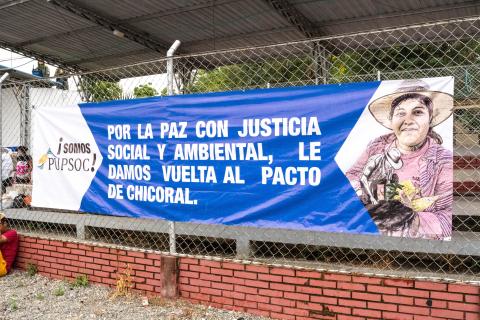Revisiting Chicoral: Colombia’s Sandwich Strategy for Land Reform, Then and Now
Image: Poster “For Peace with Social and Environmental Justice — Turning the Chicoral Pact Around" by Luis Baquero
In February 2025, over 5,000 peasant, Indigenous, and Afro-descendant leaders gathered in Chicoral, Tolima – a small town in the plains of an Andean valley in Colombia. Today, it is known as an agricultural production hub, but in 1972, it became infamous as the site where political and landowning elites struck a deal to shut down agrarian reform – entrenching land inequality and silencing the voices of the rural poor for generations.



